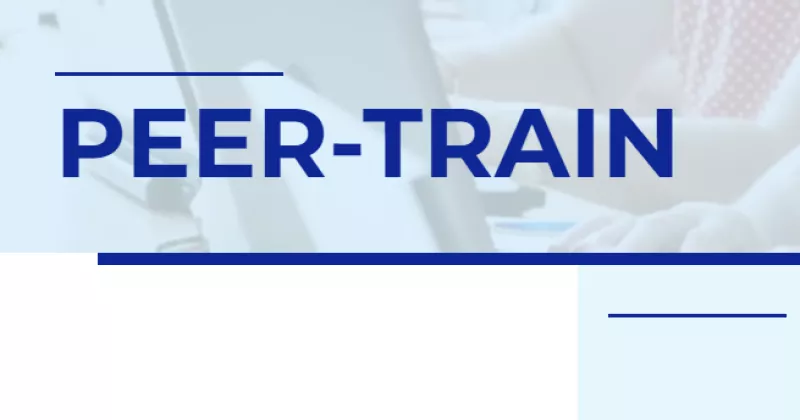Building Sustainable Businesses: The importance of Financial Literacy for Entrepreneurs

EU Funding Executive Marija Elena Borg from the Malta Business Bureau assesses the significance of financial literacy for entrepreneurs.
Literacy – in all its forms – is a basic need for human development. In an increasingly complex financial environment, being financially literate does not only benefit the individual, but also positively contributes to the effective functioning of a society’s economic stability and development.
What is financial literacy?
The Organisation for Economic Co-operation and Development (OECD) and the International Network on Financial Education (INFE) define financial literacy as:
“A combination of awareness, knowledge, skill, attitude and behaviour necessary to make sound financial decisions and ultimately achieve individual financial wellbeing”.
It is true that people have always had the responsibility of managing their own finances, but recent developments have made people feel more financially anxious.
For instance, the introduction of complex financial instruments for borrowing and saving have rendered financial markets increasingly sophisticated. Moreover, modifications made to social security policies have shifted much of the responsibility and risk for financial decisions away from the government and employers and to the individual worker. With the sharp increase in life expectancy, appropriate financial education should be regarded as a form of assurance of financial well-being.
Why is it important for entrepreneurs to be financially literate?
Throughout their business journey, entrepreneurs face complex decisions. Equipping them with financial literacy skills is therefore believed to contribute to an improved understanding of financing options and the availability of financial support services.
The Association of Chartered Certified Accountants (ACCA) presents the following list of ‘financial education needs’ for entrepreneurs:
- to distinguish between personal and business finances;
- to be a competent buyer of financial services – understanding financial products, their costs and risks;
- to anticipate the business’ future financial needs under alternative scenarios;
- to assess the risks to which the business is exposed and prepare appropriate responses;
- to understand the decision-making process of finance providers, and thus appreciate how the business can become creditworthy or investment-ready;
- to relate the business’ financial needs to a country’s regulatory and fiscal framework – to appreciate the notions of regulatory and tax efficiency;
- to exercise financial management – i.e. to use financial information to analyse business performance and create policies and controls that optimise this.
Erasmus+ Project: Financial and Forecasting Models for Entrepreneurs (INVEST) Aware of the fact that the 2008 financial crisis prompted the adoption of a more analytical financial approach by entrepreneurs, the Malta Business Bureau partnered up with six other European organisations on an Erasmus+ project seeking to boost financial literacy, particularly amongst micro entrepreneurs (small business owners). The dissemination of a survey to establish the current level of financial literacy in the participating countries (Malta, Italy, Greece, the Netherlands and the United Kingdom), has re-confirmed that entrepreneurs possess limited confidence in dealing with financial issues. As a result, the project consortium is currently developing an e-learning toolkit, which is expected to provide entrepreneurs with sufficient financial knowledge to make responsible economic, financial and investment choices. This toolkit is expected to be launched in all five countries, in December 2017. Stay tuned! |
Marija Elena Borg is the EU Funding Executive at the Malta Business Bureau, which serves as the EU-advisory office of the Malta Chamber of Commerce, Enterprise and Industry and the Malta Hotels and Restaurants Association.






Looking for an ERASMUS+KA1 course in sustainable development
We are the Second Chance School of Pyrgos which provides secondary education to adults, who have dropped out school, against social inclusion. Our adult students are mostly early school leavers. So, the main purpose of our school is to provide our adult learners through the main fields of education -"lliteracies" (as we call our lessons), on Greek and English Language, Mathematics, physics, sociology, environmental, aesthetic, information technology, with self-confident, empowerment, critical thinking, participation and the main skills in order to gain access to the labor market against social exclusion. Some of these methods are taking place through the projects which are organized at our school such as:
- Practices of Sustainability - Planting our own garden
- Techniques of photography using Information Technology and creating the tourist guide of our area.
- Instruction practices and creating the maquette of our City.
- Volunteering actions, collect food and means for the poor people.
Here you can take a look to our projects and find some information about our school:
http://sde-pyrgou.ilei.sch.gr/autosch/joomla15/index.php/parks(link is external)
We are located in an urban area at the West Peloponnese, just 10km away from Ancient Olympia, the birthplace of Olympic Games. Our adult learners basically deal with agriculture, earth, farming, tourism and some of them are unemployed.
We strongly believe that finding better methods and exchanging ideas in the field of sustainable development will help our adult learners to gain access to their resources needed to live well without compromising the ability of others. So they will have the chance to transform themselves and their companies, to feel more strong and creative. If this happens they will take the main supplies to "THINK GLOCALLY AND ACT LOCALLY" so that can take action as productive and participatory citizens, in the Greek and EU society of crisis.
If you are interesting in please contact us: vasilogeod@gmail.com